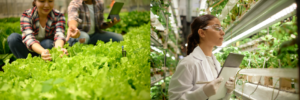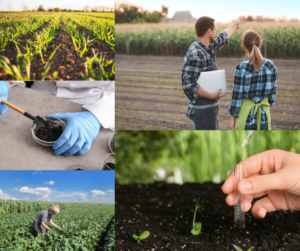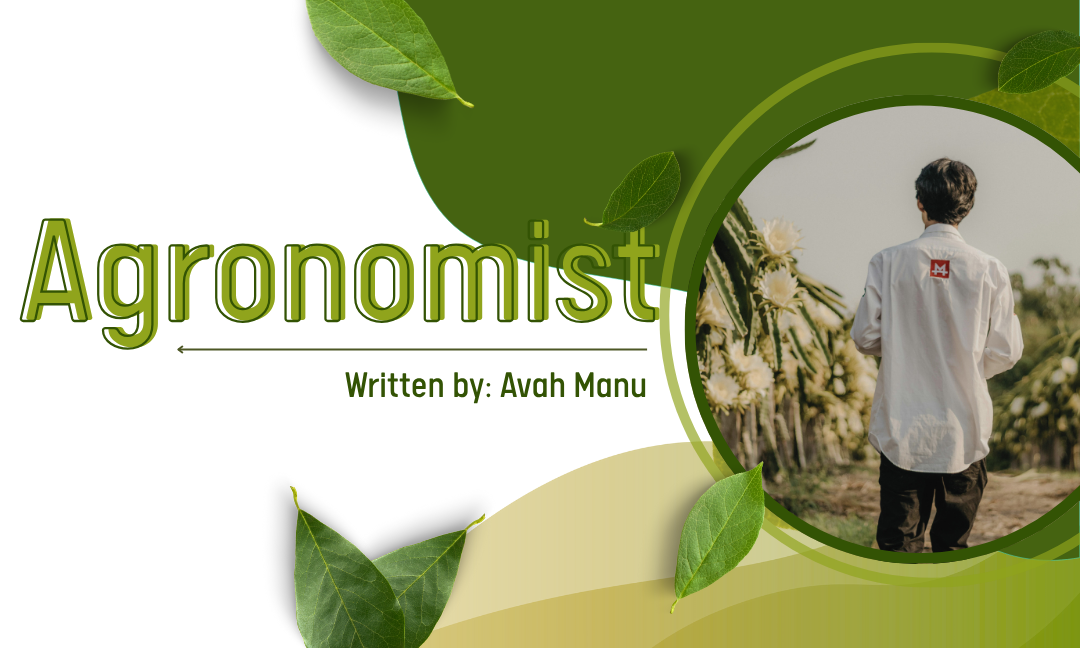Written by: Avah Manu
Edited by: Jana Daniels
Designed by: Andria Sahar
Ever wonder how farmers maintain their beautiful crops? First and foremost, farmers are not alone in this work. They receive assistance from agronomists. These specialists utilize their knowledge of factors that impact crop production and farming methods to create personalized solutions that agriculturalists can implement to improve crop production and environmental sustainability.
Agronomists apply agronomic concepts to real-world issues, which aids cultivators. Agronomy addresses nature-related topics, including plant physiology, plant production, and soil science. Agronomists selectively breed plants to enhance their growth, production, and nutritional value. They apply concepts in biotechnology to test and develop new plants, which includes discovering new, sustainable methods to use soil, and promote crop growth. Additionally, they learn about information that pertains to environmental factors and climate, food systems, and agroecology.
Their fieldwork applies these concepts through experimentation on plants to discover how longevity, durability, and crop yield can be ameliorated. Much of an agronomist’s work is conducted in person, where they physically examine the soil and plants; however, there are positions available in agricultural labs and facilities.

Being an agronomist means staying informed on the latest trends, changes in climate, and new farming techniques/tools to promote sustainable methods. Agronomists must have proficient analytical skills to effectively treat soil. Soil health is important, because it impacts crop production, pest control, and plant fertility. They complete their work by collecting research from agricultural researchers, synthesizing it, and delivering it to cultivators in a practical approach.
Therefore, they act as a mediator between farmers and researchers. Agronomic workers are crucial in agriculture because they offer counselling that helps cultivators plan and maintain their crops for the long term.

In summary, agronomists are agriculture specialists that provide farmers with insightful advice on how to increase crop yield and improve soil. They must study numerous topics related to pest control, scientific methods, and plant anatomy. Their work in the agricultural field is crucial to promote ecological practices and support production of goods, therefore helping farmers sustain their businesses through environment- friendly habits.
Sources:
How to Become an Agronomist | EnvironmentalScience.org
What is an Agronomist? – Canadian Food Focus
How to Become an Agronomist (With Definition and Tips) | Indeed.com Canada

